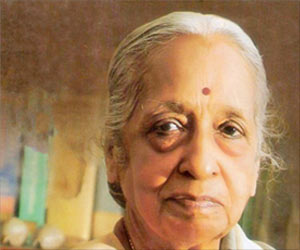World oral cancer awareness month is observed in April every year. We present an exclusive interview with Dr. V.Shantha about cancer risk and its prevention.
- Oral cancer is one of the top three cancers that are prevalent in India
- It is estimated that 1.7 million people will be affected by oral cancer by the year 2035
- Dr.V.Shantha shares her experience about working with cancer patients, the risk factors of the disease, and emphasizes that cancer is preventable
- Excessive alcohol consumption
- Smoking Tobacco
- Chewing tobacco
- Chewing betel nut
- Poor dental care
- Poor diet
- Human Papilloma Virus
- Poor nutrition
- Insufficient health care
- Inadequate living conditions
- Habits and behavior that increase risk for oral cancer
In India and similar other developing nations, patients from low income and middle income families do not have access to good, well organized, quality cancer treatment facilities. To complicate procedures, these families are often faced with high treatment expenditures which can further push them into poverty.
Incidence of Oral Cancer in India
- Oral cancer incidence in India is 20 per 100,000 population.
- It constitutes 30% of all cancers.
- Every day, more than 5 people in India die every hour due to oral cancer.
- The incidence of oral cancer is estimated to increase from 1 million in 2012 to more than 1.7 million in the year 2035.
- The death rate due to this form of cancer will also increase from 680000 to 1- 2 million during the same period.
TOP INSIGHT
Oral Cancer can be prevented by maintaining good oral hygiene, food habits and restraining from smoking tobacco.

A well-known and distinguished doctor, she committed her life to improving the lives of cancer patients. Dr V.Shanta was born in a distinguished scientific family, her maternal grandfather’s brother was Sir. C.V.Raman and her mother’s brother was Shri. Chandrashekar, both Nobel Laureates. She joined the Cancer Institute in 1955, which was established by the Womens' Indian Association Cancer Relief Fund in 1954. She has dedicated over 50 years to the mission of organizing care of cancer patients. Dr. Shantha played an important role in the development of the Cancer Institute (WIA), from a cottage hospital of 12 beds to an important landmark in cancer care, of national and international repute.
Some of her achievements and important positions held include
- Padma Bhushan award winner (2006)
- Ramon-Magsaysay Award For Public Service, Phillipines
- WHO Advisory Committee on Cancer till March 2005
- Chairman of the INDO-US Collaborative Group on Lymphoid Neoplasias (Indian Chapter)
- Convener of the State Advisory Board on Cancer
- Involved in many ICMR Committees
- Member of the Syndicate of the Anna University
- Member of the ICMR Task Force on Registries
- President of the Indian Society of Oncology (1988-1990)
- President of the 15th Asian & Pacific Cancer Conference (1999)
- President of the Asian & Pacific Federation of Organizations for Cancer Control (1997-1999)
- Participated in a number of International Scientific Collaborative Programs
- Published over 95 papers in national and international journals
- Contributed many chapters in popular oncology books
- Delivered many prestigious lectures and orations
Medindia: What are the causes for Oral Cancer In India?
Dr. V.Shantha: Lack of sufficient oral care is one of the important reasons; tobacco smoking and chewing are other major factors. Even with all the advertisements against tobacco use, people still continue the practice. Oral cancer is more prevalent among males than in females because of this habit of tobacco use.
Medindia: You have been associated with one of the premier cancer institutions in India - what has been the major stumbling block?
In the 1950s pediatric cancers were fatal, but 60% of the pediatric cases that we see today are cured. There is an improvement in survival but the stigma still remains.
Dr. V.Shantha: The food we eat plays an important role. Habits like tobacco smoking and consuming alcohol should be restricted and a healthy lifestyle should be maintained. Lifestyle factors play a significant role. Good oral hygiene practices should be followed, like rinsing the mouth after every meal and brushing the teeth before going to bed everyday. One of the main causative factors for oral cancer is the Human Papilloma Virus or HPV. Sexual hygiene will help lower the risk for cervical cancer.
Children are exposed to passive smoking, which is another factor for cancer. By following proper diet, hygiene and lifestyle modifications, cancer is preventable.
Medindia: Recently the U.S. Food and Drug Administration approved genetic tests to screen for diseases, including cancer, your comments on this?
Dr. V.Shantha: Genetic tests for cancer have been available for the past 10 years and they do indicate the risk for cancer. But they are very expensive and not everyone can afford it. Further research should be carried out to develop a less expensive method of testing. There is a lot of research that we carry out in our organization to improve our understanding of the disease.
Medindia: You entered the profession when not many women were present. How is the present scenario?
Dr. V.Shantha: Now there are nearly 50% of women in the medical profession. Though I am happy with the numbers, I would like to tell the current breed of doctors to follow an ethical medical practice. There are numerous advances in technology but empathy is lacking. Nobody wants to care for the patient in terms of providing emotional support. Doctors should respect the patient, which is of utmost importance.
Medindia: What was it like when you won the Padma Bhushan award doctor?
Dr. V.Shantha: Personal awards mean nothing to me. The award is for the institution and the support it has provided. Nothing is an individual effort, it is the effort of the entire team that has been recognized. Like Dr. Abdul Kalam said, if we love the institution that we work for, if we are proud of it, then we will work hard.
Medindia: What is your message to society on Oral cancer Awareness Month?
Dr. V.Shantha: Maintain good oral and dental hygiene. Visit the dentist regularly and lead a healthy lifestyle.
References:
- Raise Oral Cancer Awareness - (http://www.aaoms.org/media/raise-oral-cancer-awareness)
- About Oral Cancer Awareness Month - (http://oralcancerfoundation.org/events/oral-head-neck-cancer-awareness-month/)
 MEDINDIA
MEDINDIA





 Email
Email










